Petrol smuggling to Thailand
Ineptitude of authorities allowing this trade at taxpayers’ expense
The Malaysian-Thai border towns have been traditional trade routes for hundreds of years. It was only when formal border crossing points were set up in the 1970s, and some as late as the 1980s, that certain items became contraband.
Beras, or rice is a restricted import from Thailand to prop-up the Bernas rice importing monopoly. Foreign workers from Thailand, Myanmar, Laos, and Cambodia use the borders to enter Malaysia (mostly illegally) to find work in the major cities. Cooking oil, petrol, and diesel are primarily banned from export to Thailand, due to government subsidies to keep retail prices down for Malaysian consumers.
Petrol smuggling industry
Petrol and diesel smuggling is strongly encouraged by the price differentials between Malaysia and Thailand. Standard petrol in Thailand retails for 36-37 Baht (USD 1.03-1.06) per litre, compared to just RM 2.05 (USD 0.46) per litre in Malaysia. Diesel in Thailand retails at 35 Baht (USD 1.0) per litre, while in Malaysia the price is RM 2.15 (USD 0.48) per litre.
Thus, smuggling cartels are able to buy petrol for 16 Baht and sell for 24 to 26 Baht, making 8-10 Baht per litre. Retailers sell from 30-45 Baht, making 6-21 Baht per litre. Diesel is usually sold to farmers in bulk, much cheaper than domestic prices within Thailand.
Estimates of daily sales in Southern Thailand range from 10,000 to 25,000 litres per day, depending on the day of the week, and time of month. This extrapolates to 160,000-400,000 Baht (RM 20-51.4K) imports of petrol per day from Malaysia, excluding diesel purchases. This gives petrol smuggling cartels 80,000-200,000 Baht gross per day, which would be divided between half a dozen smuggling cartels.
Petrol is primarily purchased from small sundry stores by motorbikes for convenience, and automobiles in remote areas. Consumers make some small savings over purchasing petrol at the major petrol pump stations. Petrol is usually displayed and sold in 1.25 lire glass coke bottles outside their shops.
Up to 100 converted pick ups are outfitted with hidden extra fuel tanks, and reinforced suspension to make the car look like it is not heavily ladened with weight. Pick up drivers make an early start in the morning, driving across the border into the nearest town across the border in Malaysia and fill their pick ups. They then return to Thailand, unload the fuel into a consolidated storage and make more trips across the border to refill their tanks. These modified pick ups can take between 400-500 litres per trip. The drivers are paid RM 0.20 per litre for their part.
The ministry of domestic trade has made a number of restrictions upon Thai vehicles along the border areas. For example, Thai vehicles cant buy more than 20 litres of diesel within 50 km of the border and the purchase of standard petrol is prohibited. There is a ministry officer spasmodically stationed at border area petrol pumps to monitor compliance. However, there are a number of petrol stations that are colluding with the Thai smugglers.
Enforcement
To return to Thailand the pick ups must pass through a number of checkpoints. The first road block would be the Unit Pencagah Penyeludupan (UPP), or anti-smuggling unit, under the Home Ministry, comprising members of the Royal Malaysian Police (PDRM), Royal Malaysian Customs, and Immigration Department. These are usually 2-6 kms from the border.
Next at the border checkpoint itself, the pick ups must pass through customs, immigration, and then a final police checkpoint just a few metres before the actual border demarcation line.
On the Thai side, the pick ups must pass through the Royal Thai Customs post, and occasionally, an army operated check point just down the road from the border post. Thailand’s 4th Army, headquartered in the south is active in cracking down on petrol smuggling along border areas.
The major petrol smuggling border posts include Padang Besar in Perlis, Bukit Kayu Hitam in Kedah, and Rantau Panjang in Kelantan. Some also come through Betong in Yala, and the Wang Kelian-Satun border post. Fishing boats are also taking smuggled petrol further up the Thai coast as far as Phuket on the West Coast and Chumphon on the east coast. One fishing boat can carry up to 5,000 litres from Kedah, Penang, Kelantan, or Terengganu.
Most of the time, these smugglers pass through all these road blocks and check points with ease. No money ever changes hands on site. These activities are monitored by a wide coverage CCTV network that goes down to Putra Jaya. Any untrained bystanders who know the areas would very quickly, see what is going on. The fact that Malaysian authorities on the border are not enforcing the restrictions on petrol and diesel smuggling opens up many questions.
Independent operators have been pushed out, where most smuggling is now undertaken by major cartels, which have more or less agreed territories in Southern Thailand to sell and distribute their petrol.
Malaysian authorities are rumoured to be either part of the operation, or collecting a blanket payment each month. That’s the talk. This smuggling has been going on for decades, where it was accepted the pick up drivers were just local people trying to make a meagre living. A blind eye was usually given.
Occasionally, there would be spot checks, or blanket checks on all cars, trucks, and pick ups, which would cause traffic jams at the checkpoint. This would usually occur when a new director was stationed at the border checkpoint, or a visiting senior officer visited the ICQ checkpoints.
This is just the tip of the iceberg of smuggling between Malaysia and Thailand through the country’s porous border checkpoints. The taxpayers are losing out on the lax border enforcement, as the petrol subsidies are financed by taxpayers money.
There is no point building massive ICQ Complexes and building border walls with CCTV, if Malaysia’s border protection officers can’t stop this illicit trade.
Subscribe Below:


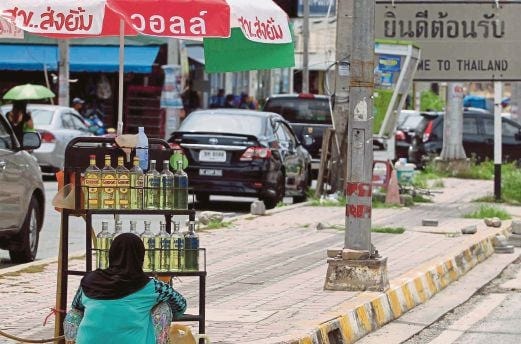
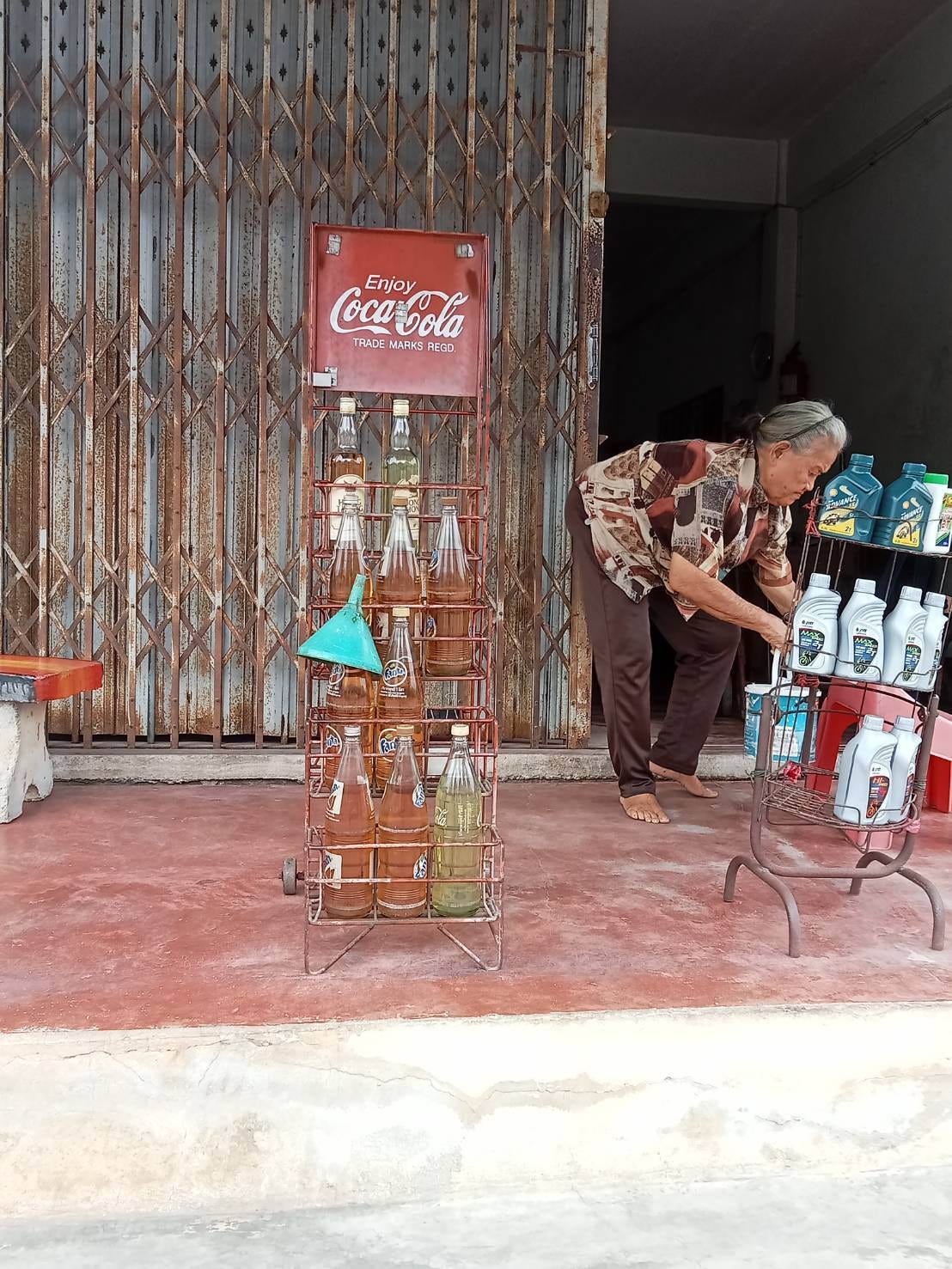
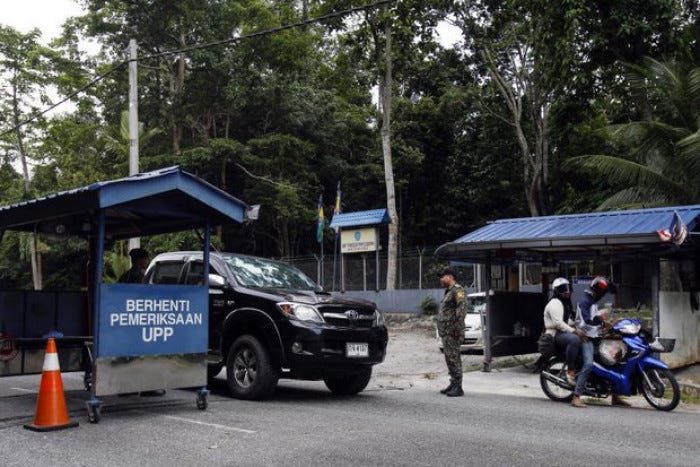
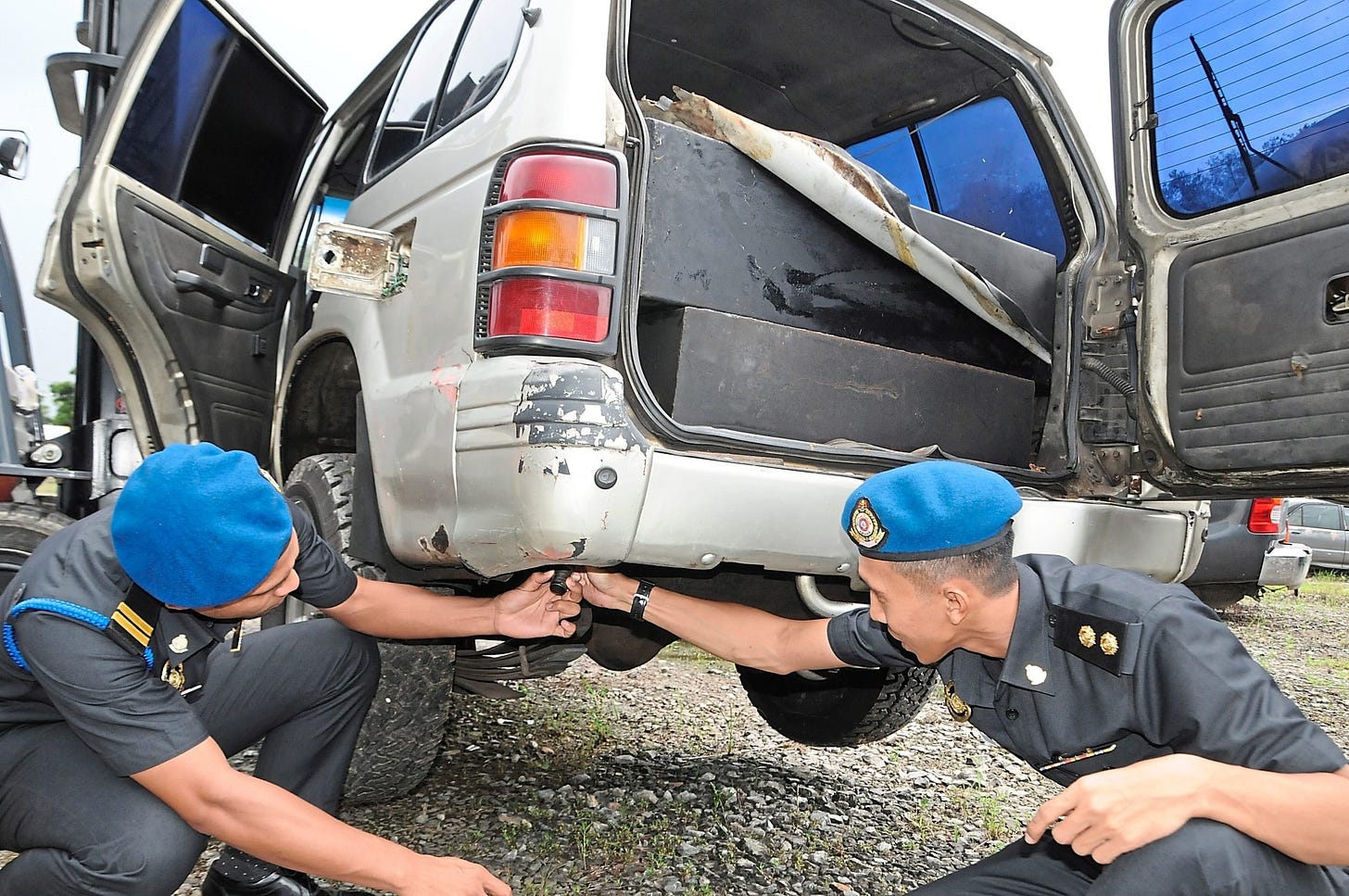
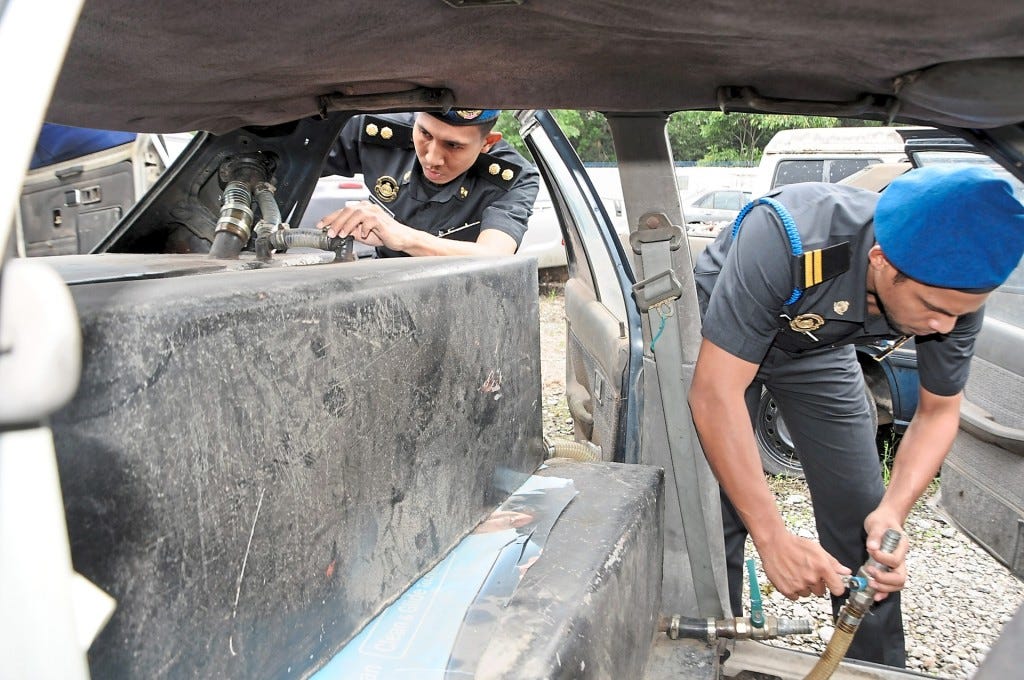
Leave them alone. Let there be free trade. Even better let there be anarchy. In any case the Malaysian petrol is of much lower quality so anyone with money to take care of their vehicles will only buy thai petrol.
You forgot to mention where and how many of the island resorts on the Andaman Sea all the way up to Phuket obtain their booze..... 😉😉😉